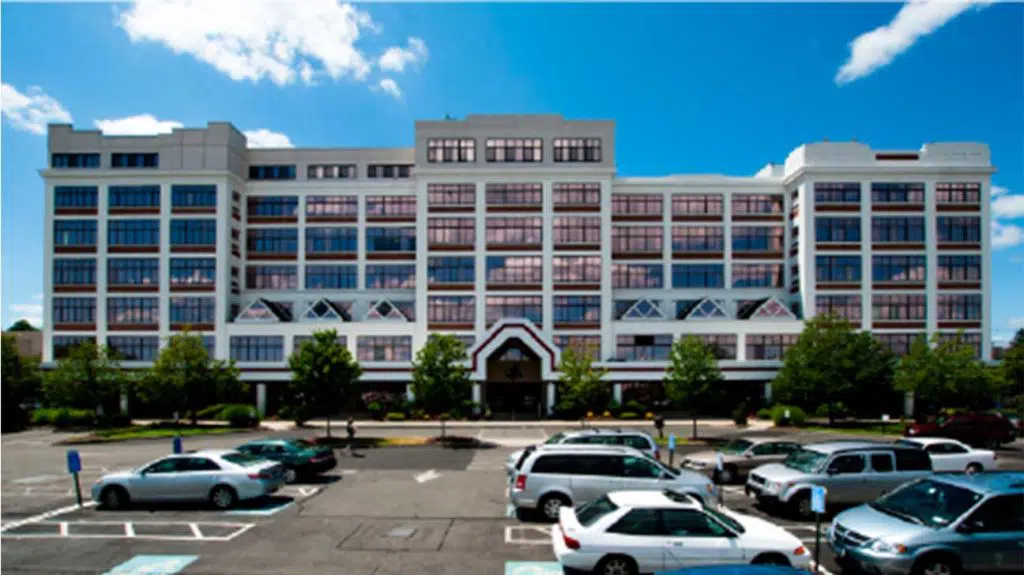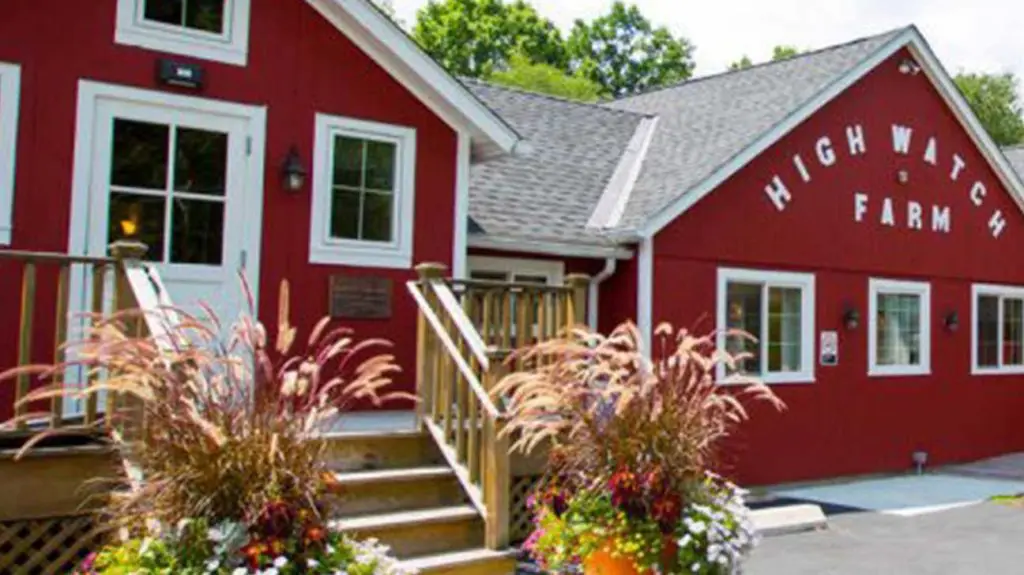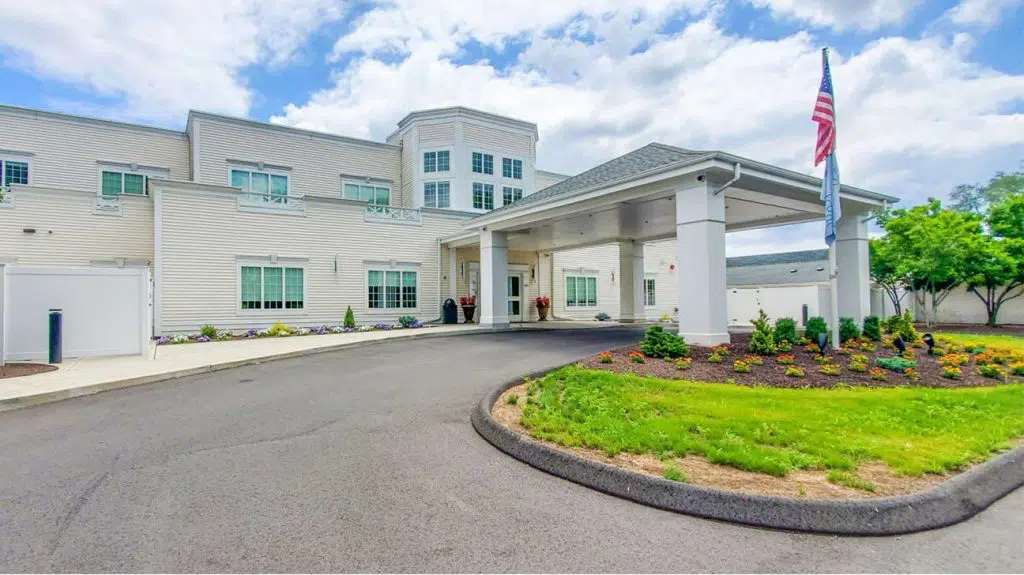
For those who have both a mental illness and a substance use disorder, a dual diagnosis program is the optimal treatment option.
In Connecticut, dual diagnosis rehab programs can treat both disorders together. This is ideal because mental issues and substance use disorders often exacerbate one another.
You or your loved one can join a co-occurring disorder group, find peer support, get counseling for both disorders, and more at a dual diagnosis rehab center.
List Of Connecticut Dual Diagnosis Treatment Centers
We’ve researched to find the top dual diagnosis addiction treatment programs in the state of Connecticut.
The rehab centers below offer dual diagnosis treatment in Connecticut and each feature qualifications such as accreditation, certifications, or other marks of quality.
1. APT Foundation, New Haven, Connecticut
Clients can get treated for substance abuse and co-occurring mental health disorders here at this addiction treatment center in New Haven, CT.
Outpatient programs (OP), residential treatment, and telehealth options are available at the ATP Foundation.
Supporting features of this drug abuse program include:
- a 3.8-star Google rating
- accreditation from the Commission on Accreditation of Rehabilitation Facilities (CARF)
Location and contact information:
1 Long Wharf Dr.
New Haven, CT 06511
(203) 781-4600
2. BlueSky Behavioral Health Clinic, Danbury, Connecticut
Individualized treatment plans are available to treat dual diagnosis, schizophrenia, depression, and other disorders at this mental health and dual diagnosis treatment center in Danbury, CT.
Treatment services for mental health and co-occurring disorders include:
- dual diagnosis treatment
- 12-step programs
- motivational interviewing
- exposure response therapy
Treatment for addiction and mental health issues at this rehab center is supported by CARF accreditation and positive reviews from clients.
Location and contact information:
52 Federal Rd.
Ste. 2A
Danbury, CT 06810
(888) 822-7348
3. Connecticut Center For Recovery, Greenwich, Connecticut
Dual diagnosis treatment is available here, in addition to other programs like day treatment, an intensive outpatient program (IOP), and extended care.
Drug rehab programs provided here are backed by:
- evidence-based methods of treatment
- 4.8 stars on Google
Multiple therapy types are used at this outpatient treatment center in Greenwich, CT.
Some of these therapy types include:
- CBT
- DBT
- eye movement desensitization and reprocessing (EMDR)
- experiential therapy
- motivational interviewing
- structural family therapy
- trauma-focused therapy
Location and contact information:
177 W. Putnam Ave.
1st Fl.
Greenwich, CT 06831
(888) 387-5741
4. High Watch Recovery Center, Kent, Connecticut
This is a residential medical facility that provides treatment for substance use disorders co-occurring with depression, anxiety, and bipolar disorder, and other psychiatric disorders.
The addiction treatment program in Kent, CT is backed by:
- 4.6 stars on Google
- LegitScript certification
- membership in the National Association of Addiction Treatment Providers (NAATP)
- Joint Commission accreditation
- Better Business Bureau (BBB) accreditation
Location and contact information:
P.O. Box 607
Kent, CT 06757
(860) 927-3772
5. Midwestern Connecticut Council Of Alcoholism (MCCA), Danbury, Connecticut
Specialized groups for individuals with co-occurring disorders are available with MCCA’s outpatient treatment programs for substance abuse near Bethel, CT.
OP services are also available in Danbury, Derby, New Haven, New Milford, Torrington, and Waterbury.
Substance abuse treatment at MCCA is supported by features such as:
- a 3.7-star Google rating
- evidence-based practices
- positive client reviews
- CARF accreditation
MCCA provides Spanish-speaking addiction services including detox, medication-assisted treatment (MAT), short-term and long-term residential treatment, and IOP.
Location and contact information:
38 Old Ridgebury Rd.
Danbury, CT 06810
(877) 874-6222
6. New Era Rehabilitation Center, Multiple Locations
New Era Rehabilitation Center offers mental health and substance abuse treatment near West Haven, CT.
They offer:
- intensive outpatient programs
- counseling
- MAT
- detox
- individual, group, and family therapy
The IOP program can treat mental health, substance abuse, and co-occurring disorders.
Trusted features of this addiction treatment center include:
- Joint Commission accreditation
- CARF accreditation
- a 4.6-star Google rating
Location and contact information:
311 E. St.
Ste. 2FL
New Haven, CT
(203) 344-0025
7. Newport Academy, Darien, Connecticut
Newport Academy provides inpatient and outpatient rehab programs in Darien, CT, as well as in Georgia, Maryland, and California.
Treatment for co-occurring disorders is available with outpatient treatment, IOP, and partial hospitalization program (PHP) services for teens in Connecticut.
This drug and alcohol rehab center provides high-quality treatment with:
- Joint Commission accreditation
- LegitScript certification
Location and contact information:
85 Old Kings Hwy. N.
Darien, CT
(844) 434-5126
8. Retreat Behavioral Health, New Haven, Connecticut
There are several treatment facilities under the Retreat Behavioral Health network. Their South Connecticut inpatient location in New Haven offers a specialized co-occurring disorder track.
This drug rehab center near Milford, CT features several notable qualities, such as:
- Joint Commission accreditation
- CARF accreditation
- LegitScript certification
- Psychology Today verification
- BBB accreditation
Retreat Behavioral Health provides inpatient programs, MAT, OP, and other services.
Location and contact information:
915 Ella T. Grasso Blvd.
New Haven, CT 06519
(855) 802-6600
9. The Southeastern Council On Alcoholism And Drug Dependence (SCADD) Lebanon Pines, Lebanon, Connecticut
SCADD offers multiple outpatient and inpatient drug rehab programs, including detox, OP, IOP, MAT, and residential addiction treatment in Lebanon, CT.
The Lebanon Pines program is a long-term treatment option for men with addiction and co-occurring mental health disorders.
Addiction services at SCADD are:
- CARF-accredited
- supported by a partnership with United Way
- recognized by the Health Resources and Services Administration (HRSA)
Location and contact information:
37 Camp Mooween Rd.
Lebanon, CT
(860) 889-1717
10. Turnbridge, New Haven, Connecticut
Turnbridge has gender-specific dual diagnosis treatment for adolescents and young adults at their three-phase addiction recovery center near Bridgeport, CT.
While in the program clients will go from theory to application and receive an academic education, vocational training, and life skills.
Behavioral health services provided at Turnbridge are:
- LegitScript-certified
- CARF-accredited
- backed by NAATP membership
Location and contact information:
189 Orange St.
New Haven, CT 06510
(203) 937-2309
Types Of Treatment For Co-Occurring Disorders At Rehab Centers In Connecticut
You can find several different approaches to co-occurring disorders that include, therapy, medication, and experiential therapies.
The most common therapeutic approaches include cognitive behavioral therapy, dialectical therapy, and contingency management. But these are not the only approaches.
You may find treatment centers that use the strength of a community to help others develop and grow in coping with mental health and substance use disorders.
Some facilities will use experiential therapies like equine therapy or adventure therapy. Others will rely on a more clinical approach and prescribe medication to help with the symptoms of a disorder when necessary.
How Common Is Dual Diagnosis In Connecticut?
From 2019 to 2020, the Connecticut Department of Mental Health and Addiction Services (DMHAS) reported that about 33% or one-third of their clients had a dual diagnosis.
This means that they were seen for both substance abuse and mental illness concurrently.
How To Choose A Dual Diagnosis Program In Connecticut
Several factors might influence the type of treatment program you select. Each drug and alcohol treatment center will have different levels of care, specialized programs, and services.
To find the right program, consider the following:
- Co-occurring disorder care: Verify that the rehab center can treat the co-occurring disorders you have. Some programs only treat certain mental health issues.
- Insurance: Check to see whether your treatment plan can be covered under Medicaid or your private health insurance provider.
- Inpatient or outpatient: Decide whether you need 24-hour residential or inpatient treatment, or partial care with an outpatient program.
- Targeted dual diagnosis treatment: The treatment center you choose should offer specific programs for dual diagnosis clients, such as co-occurring disorder groups and therapy.
- Marks of quality: Look for marks of distinction of quality such as those mentioned above like accreditation, certification, licensure, or other marks.
FAQs For Connecticut Dual Diagnosis Treatment
To learn more about dual diagnosis treatment programs in Connecticut, please read through the frequently asked questions below.
What Is The Difference Between Dual Diagnosis And Regular Rehab Programs In Connecticut?
A dual diagnosis rehab program in Connecticut will treat mental illness and substance abuse together, A standard treatment program will primarily focus on substance abuse. Although it is worth noting that some therapies like cognitive behavioral therapy are used in both cases.
Are There Dual Diagnosis Rehab Centers That Offer A Detox Program?
Yes, there are. A detox program is often necessary if you have a severe opioid or alcohol use disorder.
Detoxification can also reveal symptoms that point to a specific mental health issue such as bipolar disorder co-occurring with addiction.
What Are The Benefits Of Receiving Treatment For A Mental Illness And Addiction At The Same Time In Connecticut?
When a person has a dual diagnosis, both should be treated at the same time because one often affects the other. For example, someone may turn to alcohol abuse to self-medicate an anxiety disorder.
A dual diagnosis program helps by teaching coping strategies and skills centered on the intersection of the two disorders.
Find Dual Diagnosis Treatment Today
Dual diagnosis treatment for co-occurring disorders is available for you or a loved one.
To learn more about treatment options for yourself or someone you love, call AddictionResource.net
Updated on April 3, 2023
Addiction Resource aims to provide only the most current, accurate information in regards to addiction and addiction treatment, which means we only reference the most credible sources available.
These include peer-reviewed journals, government entities and academic institutions, and leaders in addiction healthcare and advocacy. Learn more about how we safeguard our content by viewing our editorial policy.
- Substance Abuse and Mental Health Services Administration — Co-Occurring Disorders and Other Health Conditions
https://www.samhsa.gov/medication-assisted-treatment/medications-counseling-related-conditions/co-occurring-disorders - U.S. National Library of Medicine: Medline Plus — Dual Diagnosis
https://medlineplus.gov/dualdiagnosis.html




